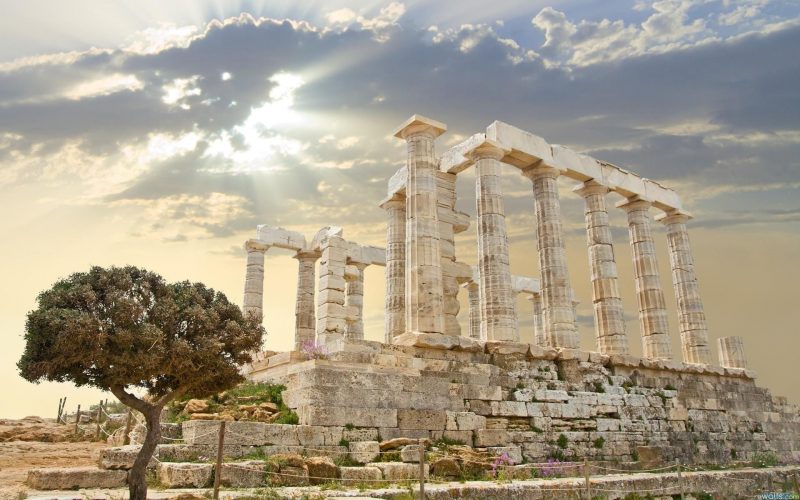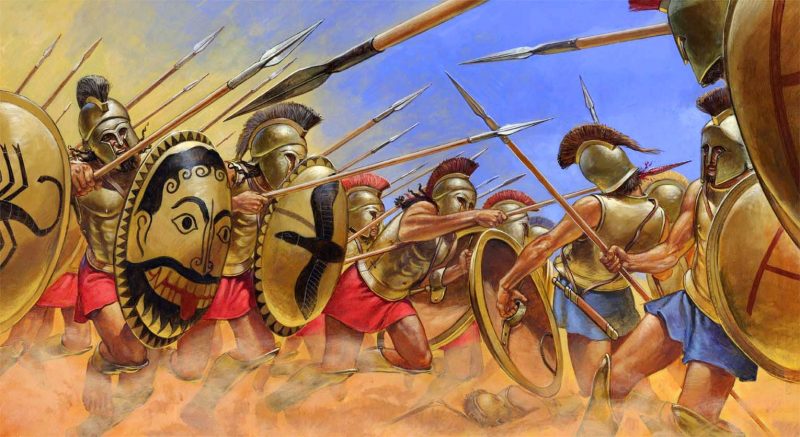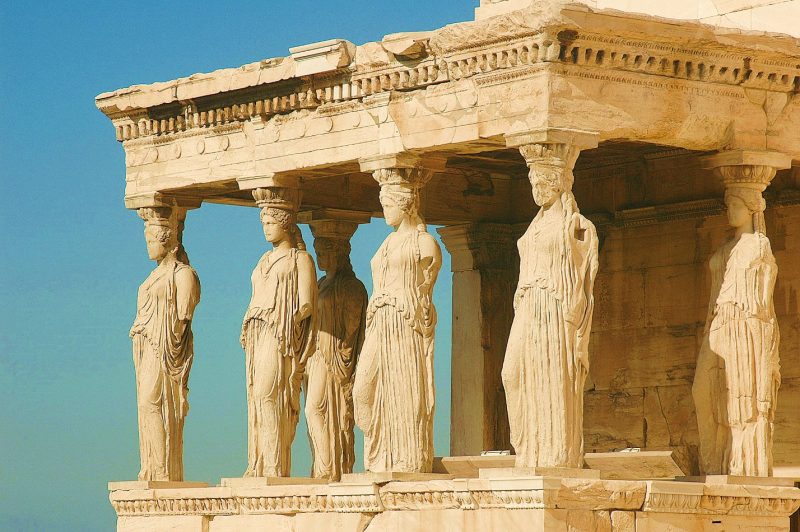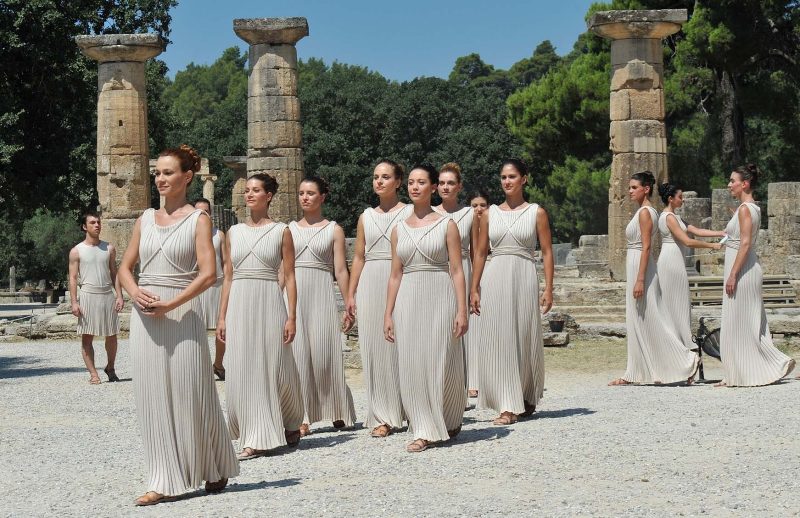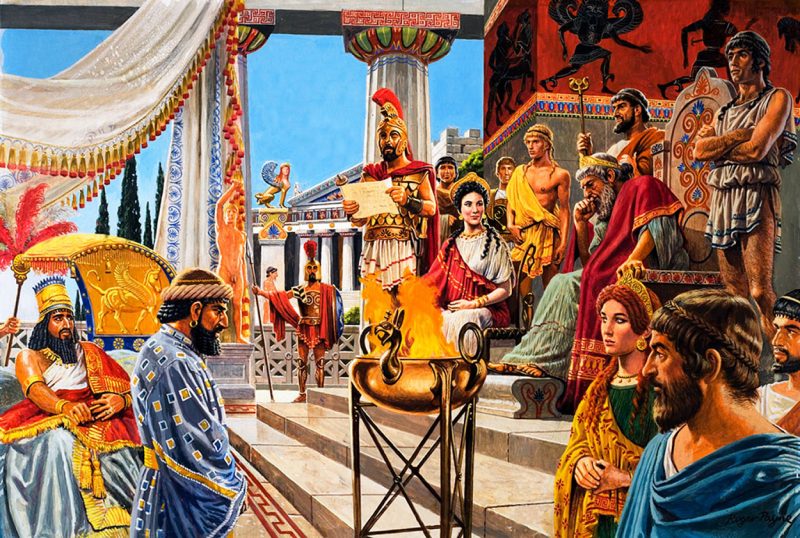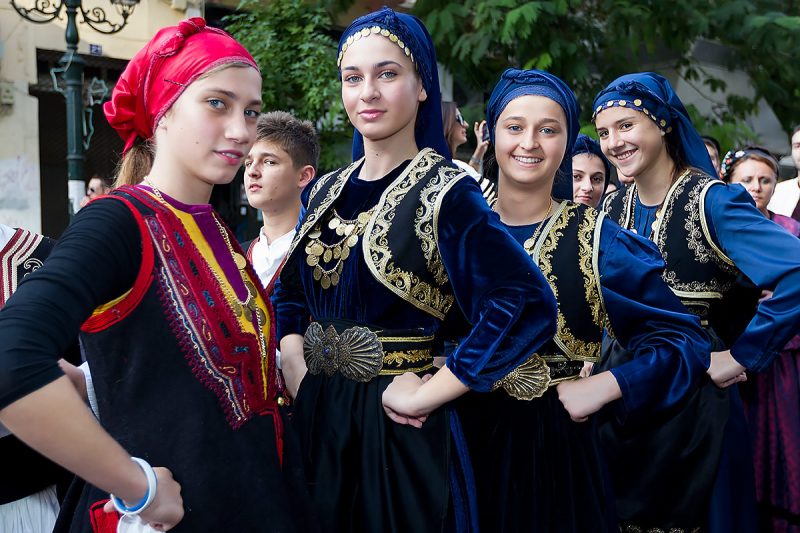Greek surnames can be heard (seen) not only in Greece, but throughout the world. They can tell a lot about the people: about popular professions, humor, mentality, values. Many Greeks are well aware of the meaning of their surname, are studying its roots and are proud of it.
Material Content:
Popular Greek last names and their meaning
The Greek surname can tell about the name, nickname of the ancestor, the nature of his activity, place of birth. Surnames of the Greeks are famous for diversity. In addition to Greek roots, the influence of Turkish, Italian, Slavic dialects is noticeable in certain surnames. This is due to the migration of peoples, their mixtures.
The meaning of the surnames of most Greeks is associated with one of several sources of origin:
- name of the ancestor;
- nickname of a long-standing representative of the genus;
- his profession;
- name of the place of his birth.
It is worth considering the gender of the carriers of the surname, because this affects the word form. Women in Greece are not accepted to decline. Men's are inclined in accordance with the same rules as other names having a masculine gender.
Declination of Greek surnames in the Russian language does not occur, which is dictated by the rules of the language.
In Greece of our time, according to the law of the country, women do not change their maiden name upon marriage. They still have the right to take the name of the husband: for this they write a statement.
Formed from Greek names
Based on each Greek name with the addition of suffixes and endings, many surnames were created.
For this, the names of the fathers were used, as a rule:
- Athanasulis (from Athanasius);
- Dimitracopoulos (from Dimitrios);
- Panayotaros (from Panos);
- Vasiliadis (from Vasily).
Several surnames can come from one name. For example, on behalf of Dimitrios the following occurred: Dimitrakopoulos, Dimitropoulos, Dmitriadis, Dmitriyu, Dimitrakis.
Sometimes, when a family name arises, the form of the name may not change at all: Ilias, Kostís. And sometimes only the case of the name changed. For example, many surnames in Greece are a form of the genitive case of male names: John, Dimitriou.
A number of surnames comes from male biblical names: Adamidi (from Adam), Ioannidis (from John), Konstantinidis (from Constantine).
Some surnames also come from female names: Katerinitsas (from Katina), Kostoulas (from Kostula), Lemonias (from Lemonia).
Greek names are considered one of the most beautiful. Therefore, from the melodic names came such beautiful Greek surnames.
Nicknames
The people often use witty nicknames that take root better than the real names of people.
Thus, nicknames appeared, indicating some kind of external or characteristic feature of the owner of this nickname:
- Condos is translated as “stunted” (the movie star Moro Condu is known for his high stature: obviously, her high ancestor was so named for the fun of it);
- Mitaras means "nosy";
- Vrachnos from the Greek is “hoarse”;
- Aftias - a man with big ears;
- Camburis translates as "humpbacked";
- Leventis has 2 translations: in the literal sense - “hero”, in the figurative - “noble”.
"Kara" in the names Karayannis, Karatzalos means an unfortunate person. Also, “punishment” in the literal meaning is “black”.
Nicknames were given in accordance with the internal traits of a person:
- Viastikos - hasty;
- Flimmenos - sad;
- Agelastos is one who does not laugh;
- Fasulaki is one who has fun;
- Zervas is serious;
Many nicknames are borrowed from the plant world:
- Portocalogue comes from "orange";
- Lemonis - from "lemon";
- Reviphis - from the word "chickpeas";
- Garufalos - from the "cloves";
- Triandafilidis comes from the "rose."
A number of nicknames also came from the animal world:
- Gorilas came from the "goril";
- Likakis - from the word "wolf";
- Katsikis - from the "goat";
- Pondikis - the “mouse”;
- Criaris - “ram”;
- Gatos is translated as “cat”.
Some Greek nicknames have foreign roots (in particular, Slavic):
- Zambas - at its core the word "toad";
- Zolotas - “gold”;
- Kammenos - “stone”;
- Buras - “storm”;
- Kralidis is the "king";
- Bikas is a bull.
Nicknames-surnames arose from various elements of the environment. In this paragraph, only some Greek surnames of this group are presented.
The activity of the ancient Greeks was laid
Some surnames directly reflected the profession, and some only indicated a sign associated with the type of human activity. Sometimes it remains only to guess what kind of profession it is. For example, the last name Printisis translates as “imprint”. There is speculation that the work of the owner of this surname was related to embossing. The surname Hadzis indicates that the person walked a lot.
Russian analogues of Greek surnames-professions are Kuznetsov, Silk, Sailors.
Examples of surnames in which the craft is directly called:
- Kavyar is a caviar merchant;
- Exarchidis - the dominant;
- Nalbat - a blacksmith for horses;
- Metaxas - the one who made silk;
- Tsagaris, Tsaruhas - a shoemaker;
- Psaras - a fisherman;
- Ambelas - one who grows grapes;
- Ifandis - a weaver;
- Galatas is a seller of milk;
- Gunaras - one who sews fur coats;
- Lahanas is a vegetable merchant;
- Kureas - the barber;
- Samaras is a man who sews saddles;
- Raptis - Swiss;
- Kambanaris - bellflower;
- Papadopoulos, Papaioannu - points to Father John, who became the ancestor of the family name.
There is a large list of Greek surnames beginning with the morpheme "papa" (pop). They point to different priests with different names.
Therefore, these surnames consist of the “papa” part and the masculine name in the nominative (Papastamos, Papazisis, Papaspiros) or in the genitive case (Papadimitriou, Papavasiliou, Papandreou).
Papadopoulos testifies to descent from the priest, but does not include his name. This surname can be considered the most common among the Greeks. Her female version is Papadopoulou.
Another group of surnames includes the obligatory element of “haji”. This word called pilgrims to sacred places, which were very respected and always waited with honors. This group also includes the names of the pilgrims: Hadzimihalis, Hadzipetros.
Kinship Indicators
The names of this group are based on the names of their ancestors or the city where they lived.
Kinship with them was indicated by different suffixes:
- -idi- means “occur” (Macedonidi);
- -akis- means "small" (Dimitrakis, Theodorakis);
- -idis- means “son” (Spanidis, Alexandridis);
- -pool- translate as "descendant" (Vergopulo, Argiropulo).
Surnames originating from the locality
By the endings of surnames you can judge the ancestor's residence in a certain area:
- -idis - living around Euxinus Pontus (in the 21st century, most Pontians live in the North of Greece);
- -pulios - a native of the Peloponnese;
- -akos - indicates the area of Mani;
- -atos - originally from Kefalonia;
- -akis is a resident of Crete;
- -elis - a native of Mytilene;
- -odas - originally from Macedonia.
National surnames directly call the city, the village, the area in which the ancestor was born and lived.
They have a wide variety of endings:
- -otis: Ipirotis (resident of Epirus), Livadiotis (resident of Livadia) - Greek male surnames. Female surnames have abbreviated forms: Livadoti, Ipiroti.
- -itis - Moraitis (from Moraitika).
- -inos - Portarianos (from Portaria), Patrinos (resident of the city of Patras), Zakynthos (from Zakynthos island). Feminine options end with the sound “y” under stress: Portaryanu, Patrina.
- -eos - Kerkyraos (resident of the island of Kerkyra), Mytileneos (originally from Mytilene).
- Iios - Parios (native of Paros).
Foreigners in Hellas were called "xenakis", which means "foreigner". Polyakov, Besarabov can be considered Russian analogues of surname-places.
Status in modern Greece
The status of the surname and the legal issues that are associated with it are recorded in Greek law.
The main points are as follows:
- The surname is considered the collective name of the family cell, which is inherited by the men.
- A woman entering marriage can leave her father's last name or take her husband's last name (at her request). Her children receive the name of the father.
- A Greek can change his last name, but to a derivative of the root of the father's last name. For example, Dmitriadis can change the name to Dimitrakis.
The surnames of Greece have a special shaping. For example, when signing a product of his work, the Greek will use the genitive case of his surname. Selling copyrighted works of art abroad, the Greeks use the nominative case of the surname.
Greeks treat these laws and their pedigree with great respect. The same is expected from the guests of the country, because the status of surnames in society is still very high.
This status was only strengthened, thanks to well-known representatives of a number of surnames.
List of Greek surnames, popular and especially respected in Greece, and their eminent representatives:
- Dusmanis: the carriers were the legendary military Sofoklis Dusmanis, Victor Dusmanis;
- among the representatives of Metaxas were masters of various professions - the famous doctor Stavros Metaxas, the great politician Ioannis Metaxas;
- the name Zervas was glorified by the politician Napoleon Zervas, the chemical scientist Leonidas Zervas;
- the surname Papazoglu is famous, thanks to the representatives of art - the poet, music producer Nikos Papazoglu, photographer Leonidas Papazoglu;
- the surname Hadzis is also represented by the great creators of art: artist Vasilios Hadzis, musician Kostas Hadzis;
- under the name Vasiliadis, such personalities left their mark in history: basketball player Kostas Vasiliadis, photographer Igor Vasiliadis;
- Georgios Grivas, leader of the struggle for freedom of Cyprus, chess player Eustratios Grivas, Greek marshal, politician Theodoros Grivas made history under the name Grivas;
- the surname Adam belonged to the footballer Baba Adam, singer Ivy Adam;
- representatives of the surname Xenakis - composer Janis Xenakis, gymnast Thomas Xenakis;
- among the bearers of the surname Printisis were basketball player Georgios Printezis, exarch Anargiros Printezis;
- the surname Amanatidis was made by the legendary footballer Yannis Amanatidis and poet Vasilis Amanatidis.
The surnames of the Greeks seem funny to some, and to many - melodic, beautiful. The sound of these surnames is very recognizable. Hearing in some corner of the planet the characteristic Greek suffixes, the ending of surnames, you can immediately find out the representatives of this country.


